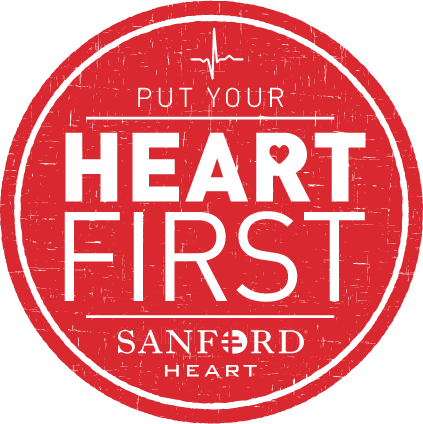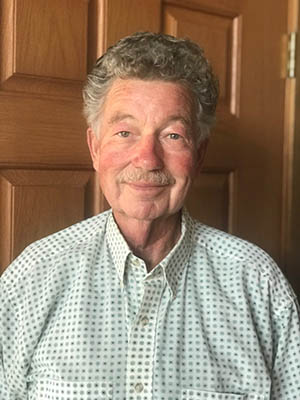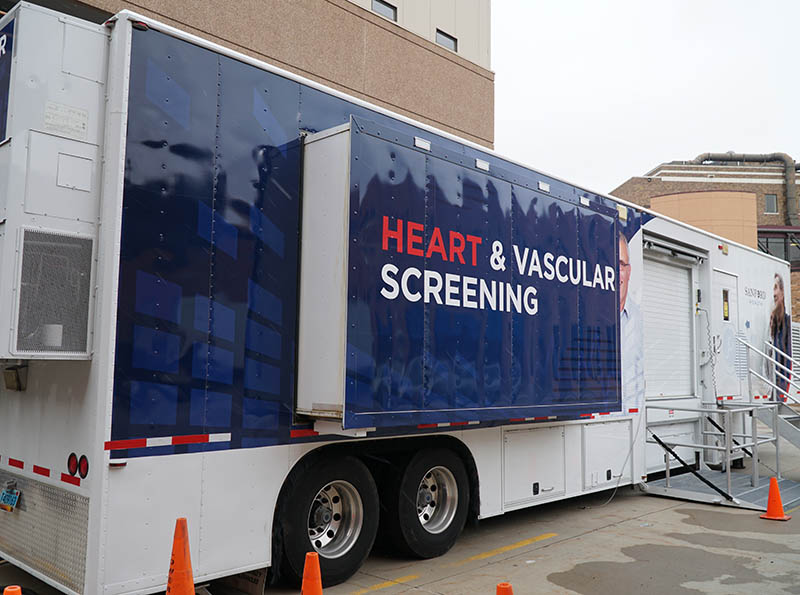Before May 3, Claude Vershure thought his health was fine, despite a hereditary high blood pressure condition.
But on May 3, the 72-year-old felt lucky to even be alive when he had a heart screening that revealed a concerning EKG, along with a cardiac calcium score more than 14 times the number that typically would trigger treatment.

Vershure, who lives in Custer, South Dakota, had no notion that Friday morning of getting a heart screening. But then his wife, Dorothy, went downtown there to run an errand. When she saw Sanford Health’s mobile screening unit parked on the street, she decided to get screened.
Related: Find a heart screening near you
Then, Vershure said, his wife called to tell him he needed to come and get screened, too. “So I dropped everything and went down and had it done.”
A shock at heart screening
A heart screening involves a brief CT scan, which measures the calcium that has built up on artery walls, posing a higher risk of heart attack or stroke; EKG to check the heart’s electrical activity; body mass index determination; and measurements of blood pressure and nonfasting cholesterol. In all, Vershure thinks it took him about 15 to 20 minutes to complete it.

Photo courtesy of Claude Vershure
Then Lynn Thomas, a nurse and director of the Sanford Cardiovascular Institute and the cardiac screening program, shocked him with his calcium score at the screening unit. He recalled her saying, “Anybody that has a calcium level of 400 or greater, we’re very concerned about.”
“What was mine?” he asked her.
Her reply: “5,900.”
A registered nurse had worked with Vershure to complete his screening tests and flagged him as someone with a potential need for intervention.
Path to surgery
Vershure’s test results were dire enough to suggest seeing a cardiologist as soon as possible. He chose to go to Sanford Heart Hospital in Sioux Falls, South Dakota.
After he arrived, the doctor determined his coronary arteries were too blocked for angioplasty or a stent. So Vershure spent more than three hours in surgery, undergoing coronary artery bypass grafting.
Bypass surgery involves taking blood vessels from elsewhere in the body — perhaps arm, chest or leg — and connecting them to blood vessels above and below the affected artery or arteries.
‘Best nursing staff I have ever, ever seen’
Vershure’s hospital stay lasted a week. So Vershure, who happens to be a nurse as well as an Episcopal priest, had plenty of time to observe the Sanford Health nursing staff in action. Vershure’s work history includes nursing in a hospital setting as well as community health, but most recently as a parish nurse.
“While I was at Sanford, I have never seen or had such good care,” Vershure said. “I can tell you, as a nurse and visiting hospitals to see parishioners, I know that most places do not have that quality of care. That is the best nursing staff I have ever, ever seen. … They were kind, and they were checking on me all the time. Very professional, and knew exactly what they were doing.”
Screening offers intervention, education
The American Heart Association recommends regular screening for your risk for heart disease starting at age 20. Screening includes measuring blood pressure, body mass index (BMI), waist circumference, and pulse at each regular health care visit or at least every two years. Getting a cholesterol test every five years for normal-risk people is also recommended.
Learn more: Cardiovascular disease screening and management
Sanford Health’s mobile heart screening, the only truck in the region, gives people early intervention and education across South Dakota and into Minnesota, Iowa and Nebraska. The semi is on the road every weekday, heading to small town streets, county fairs and the South Dakota State Fair, clinics, hospitals, Indian Health Service units, Hutterite colonies and even local businesses.
One or two people at each screening have the need for a talk about intervention and involving a cardiologist.
Others may have results that are great, or perhaps high blood pressure that merits a conversation about current medications and a referral to a primary care doctor.
Nurses follow up with people over the phone about their EKG results after they’re read.
‘It means my life was saved’
Since returning home after surgery, Vershure has started cardiac rehab, traveling 27 miles to Hot Springs three days a week to walk on the treadmill, do exercises to improve chest and arm strength and work with weights. “I’m recovering quite well,” he said.
His wife noted that before his heart condition was discovered, Vershure hadn’t had as much energy as he once did. That seems to be changing.
“Besides going to rehab three times a week, I try to get some work done at home,” Vershure said. “I like doing lumber work, building things.”
And he has advice about heart screenings for others. “I would tell them it’s the best thing that ever happened,” Vershure said.
“I could say it means that my life was saved. It means a lot. Everything. Because I don’t know how much longer I could have lasted.”
More stories
- Heart screenings protect against disease and save lives
- Consult Sanford Health heart/cardiology specialists
- Obesity and the heart: Not a death sentence
…
Posted In Healthy Living, Heart, Rural Health, Specialty Care
